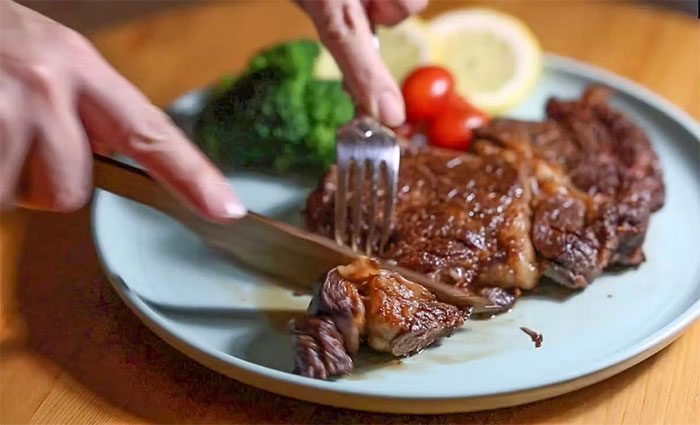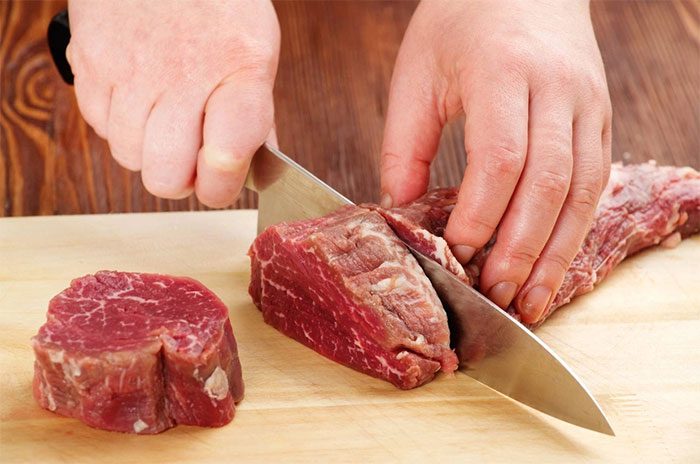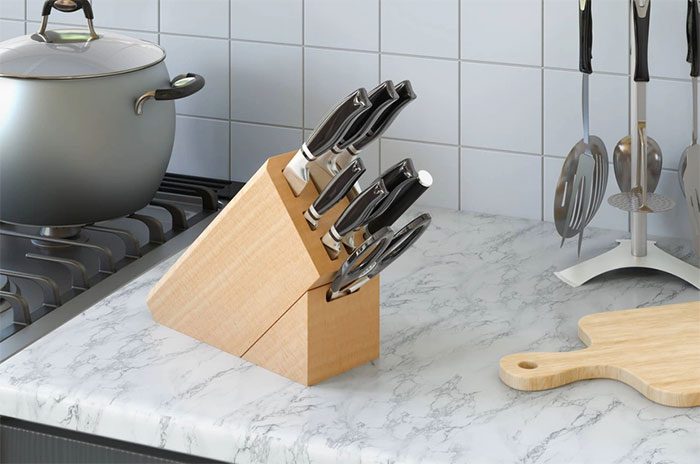Scientists at the University of Maryland (USA) have invented a wooden knife, claiming it is sharper than steel. However, many remain skeptical.
Over 60 years ago, in her book “Mastering the Art of French Cooking”, Julia Child, one of America’s most renowned chefs at the time, wrote about the importance of kitchen tools.
“In theory, a good cook should be able to perform well in any situation. However, cooking is much easier, more enjoyable, and more efficient if you have good tools,” Child stated.
The three items she mentioned were a whisk, a frying pan, and a knife – specifically, a stainless steel knife.
A Special Wood
However, many decades later, scientists are trying to prove that Child’s statement is not entirely accurate. In 2021, a research team from the University of Maryland announced that they had developed a type of wood that is 23 times harder than natural wood.
Additionally, they used this wood to create a knife. Research from the team indicates that it is nearly three times sharper than knives available on the market, which are made from steel, plastic, or natural wood.
To create the hard wood, the researchers performed a process involving chemical treatment, water soaking, cold pressing, and heating the wood. They then soaked it in food-grade mineral oil to enhance its water resistance before shaping it into a knife.

This wooden knife is advertised as capable of replacing steel knives.
Teng Li, a professor in the Department of Mechanical Engineering at the University of Maryland and the head of the research team, stated that they used softwood – a type of wood commonly used to make musical instrument bodies. However, they are researching to apply other types of wood as well.
The researchers tested the wooden knife by cutting through a piece of steak, along with cucumber, carrot, onion, and tomato. The results were excellent. However, this was a laboratory result, and many people question how it would perform in real-life situations.
Bob Kramer, a master knife maker in Bellingham, Washington (USA), said he needs to try the knife before forming an opinion.
“Try cutting a lemon, an onion, and a raw chicken with it to see how it performs. If it does well, you can feel the power of the knife,” the 30-year experienced master said.
Worse than Steel Knives?
Yao-Fen You, a senior manager at the Cooper Hewitt, Smithsonian Design Museum in New York (USA), stated that she is particularly picky about her knives. She learned to use kitchen knives around the age of five and currently owns about ten kitchen knives, one of which is a Miyabi Koh stainless steel knife priced at around $130.
“I’m quite skeptical. There are issues with wooden knives. They feel great to hold, but they tend to deteriorate over time,” she said.

Steel knives are considered the standard for chefs.
Teng Li mentioned that he has heard such concerns during the development of the wooden knife “sharper than steel.” According to him, natural wooden utensils like chopsticks, spoons, and cutting boards are still widely used in kitchens around the world.
Even though they may deteriorate over time, they still hold high usability. With proper maintenance, hard wooden items can be more durable than natural wood. On the other hand, hard wooden knives can also be sharpened like steel knives.
Good for the Environment?
In recent years, environmental issues have garnered significant attention. When discussing this topic, Teng Li noted that producing hard materials from metals and alloys consumes a lot of energy, resulting in large carbon emissions.
However, Chris Pistorius, co-director at the Center for Iron and Steel Research at Carnegie Mellon University (USA), argued that the climate impact of a steel knife is very small. Meanwhile, its recyclability is quite high.
Jesko von Windheim, a professor at the Nicholas School of the Environment at Duke University (USA), believes that to evaluate whether a hard wooden knife is better for the environment, we need to conduct a life cycle analysis.

The recycling issue with wooden knives remains a question mark.
“There are products that seem quite sustainable for the environment. But whether they truly are, we cannot conclude based solely on the production process and how they are handled. If you want to claim that hard wooden knives are better, you need to do further calculations,” he said.
Zak Eastop, from Durham, England, spent about $200 on a new kitchen knife. Eastop remarked that knives to him are like a “semi-symbiotic relationship.” They feel like an extension of his hand. And Eastop also wonders whether a hard wooden knife could be as durable and sharp as steel.
“I can’t imagine using something else to replace high-quality steel knives,” he stated.

















































